Fáilte! Welcome!
A chairde (Dear friends):
This month has five Thursdays, so this is a “bonus” blog. I hope you enjoy it!
I missed sending the monthly Chat last Thursday (The Clachan) due to traveling and attending to my wee friend, Séamus. So two reminders:
On the Summer Solstice, all paid-subscribers of The Gaelic Effect will have a chance to win one of three copies of Effie Brush’s beautiful art book, We Will Never Be Together. If you are not yet a paid subscriber, I hope you’ll join us now. I also want to remind readers about Embracing the Body, December 5th-7th. Paid subscribers receive 50 EUR off registration for this special event.
Thank you in advance for your support of The Gaelic Effect. Now, today’s edition of An Éifeacht Ghaelach:
Grief as a need
When teaching Nonviolent Communication (NVC), I often read out loud some of the universal needs: connection, understanding, community, contribution, joy, rest, play, balance, ease... There are dozens and dozens more. When hearing them, people smile. Their shoulders drop and they breathe in. Just as we respond to the sound of moving water or looking out on the sea, the very cells of our bodies recognize these life-affirming qualities.
Only one word stops people short: mourning. Sometimes they ask: “What’s this word doing on the list?” “Who wants grief and mourning?” Yet even though painful, mourning is a necessary medicine; it integrates, releases and heals. Ultimately, it’s an expression of love: a celebration of all that we value and hold dear; a keening for what we’re missing and/or have lost. The etymology of "grief" traces back to the Latin word "gravis", meaning "heavy" or "weighty" or "to make heavy" or "to burden." [Etyomoline] That matches my experience of grief. It’s the opposite of the felt-sense of love in my body: expansiveness, happiness and warmth. Perhaps this is how we know that they are so intimately related: love and grief.
“It is such an act of optimism and perhaps even denial to fall in love. We know, on a deep level, that all relationships end in one way or another. Grief and loss will happen—whether through heartbreak or death, eventually, it will come. […] Yet most of us choose love anyway. Knowing that our hearts will be broken and we will go through times when we feel empty, alone, and lonely, we still chose […] to love…” Stein
Staying connected to love
As some of you know, after months of illness, my beloved feline companion Séamus—my familiar, my anam cara (soul friend), and editor-in-chief of The Gaelic Effect, “went the way of truth,” as it’s said in Irish, last Saturday. He passed peacefully by my side, with my holding one of his paws. I was not ready for him to leave—not yet. He was only eleven (sixty in human years). Death has darkened my door too much of late. I have lost an empathy buddy of two decades, my step-father (who I was very close to), and another cat, all in a few years. But death is relentless. In the midst of this (and what’s happening in the world: intolerable genocide), I want to stay connected to love: the twin sister of mourning.
Love embodied
Séamus embodied love. Just to see him, my heart would open. Krishna Das talks about his guru, Neem Karoli Baba, as emanating love. For me, all life holds this capacity for expressing love in its highest form. Love of this kind brings me back to my center, to my core; it both grounds and opens. It is said that God is love. Quakers say there is that of God in each of us. Experiencing love, I know both are true. The path of Bhakti yoga is so clear to me now: devotion opens the heart; when our hearts are open, we receive more love. When we receive love—when we live love, when we are love—we approach the divine.
Embracing life
For me, Séamus embodied a joie de vivre. He didn’t mind going out in the rain and would love getting toweled down when he came back in. He also loved to play in the snow. I’d never seen that before: a cat going out into snow several feet deep—jumping, tunneling, chasing snow flakes.
Inside, he also liked to burrow. I’d find him sleeping in the back of a clothing drawer or closet, or as a mysterious bump under bed covers. At night, I would often make tunnels for him under the duvet, using my knees as tent poles; once he finished exploring, he’d come nestle in and use my arm as a pillow. Often my arm would hurt from not moving for so long but I didn’t disturb him. It was too sweet to have him there so close—soft, warm and smiling. I am convinced that he smiled.
When he was hungry, he made chirping noises of excitement and always wanted to sample what us humans were eating. In fact, I think he thought he was human. He’d come sit in a chair at the table. He’d jump on my lap for a full body hug.
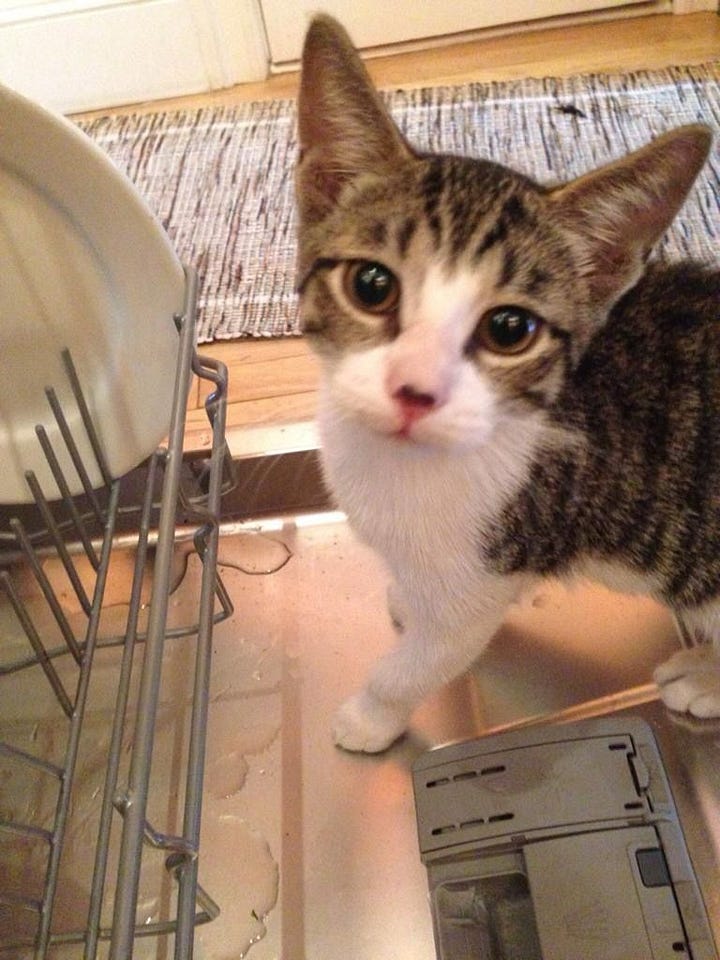
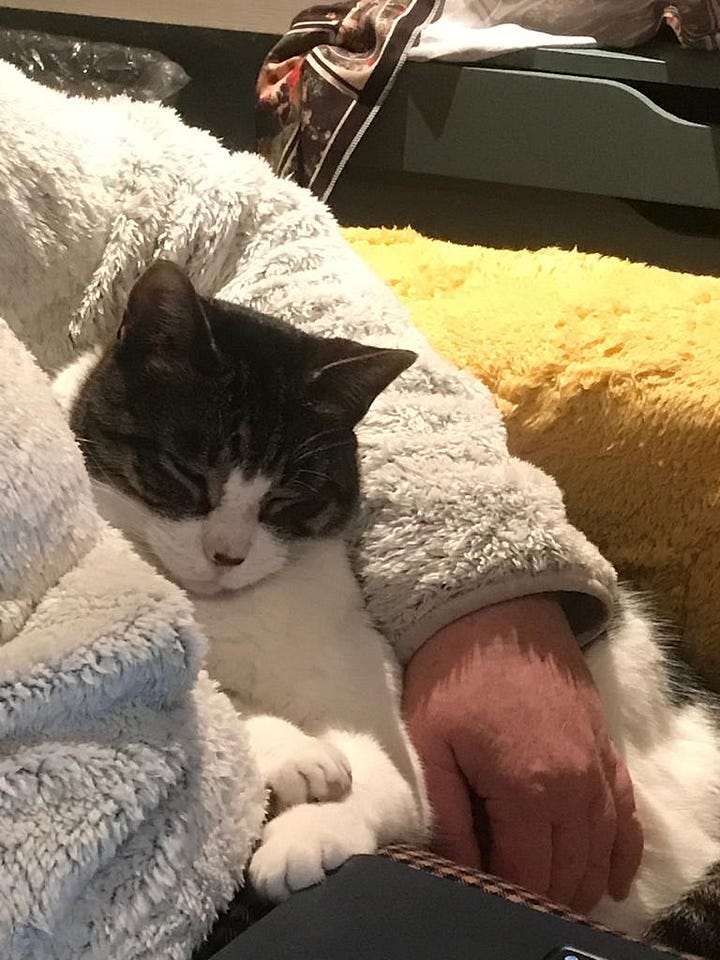
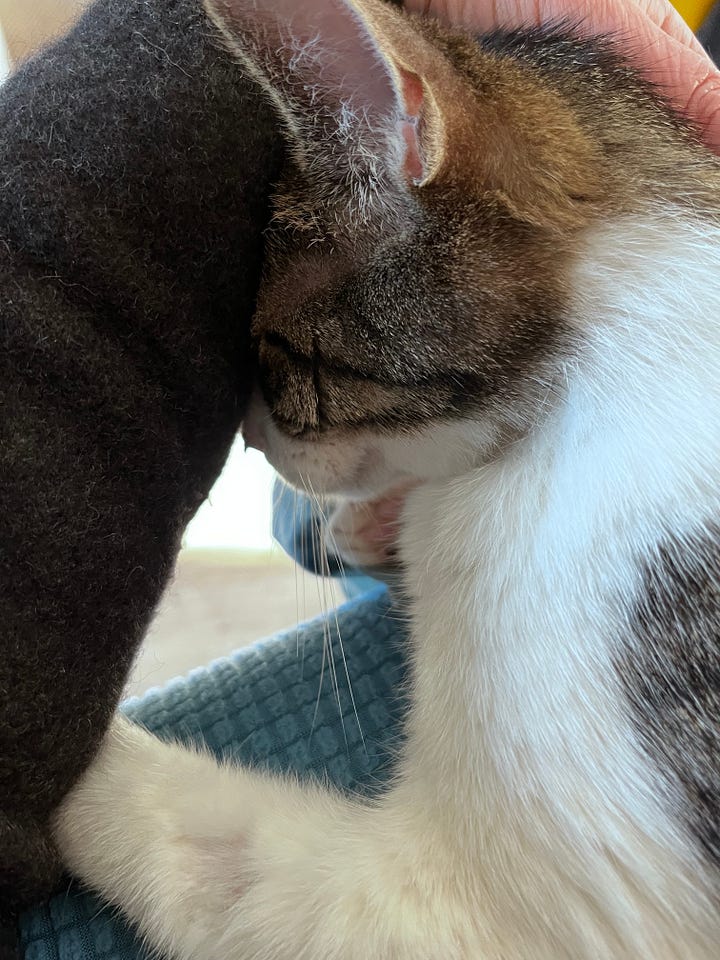
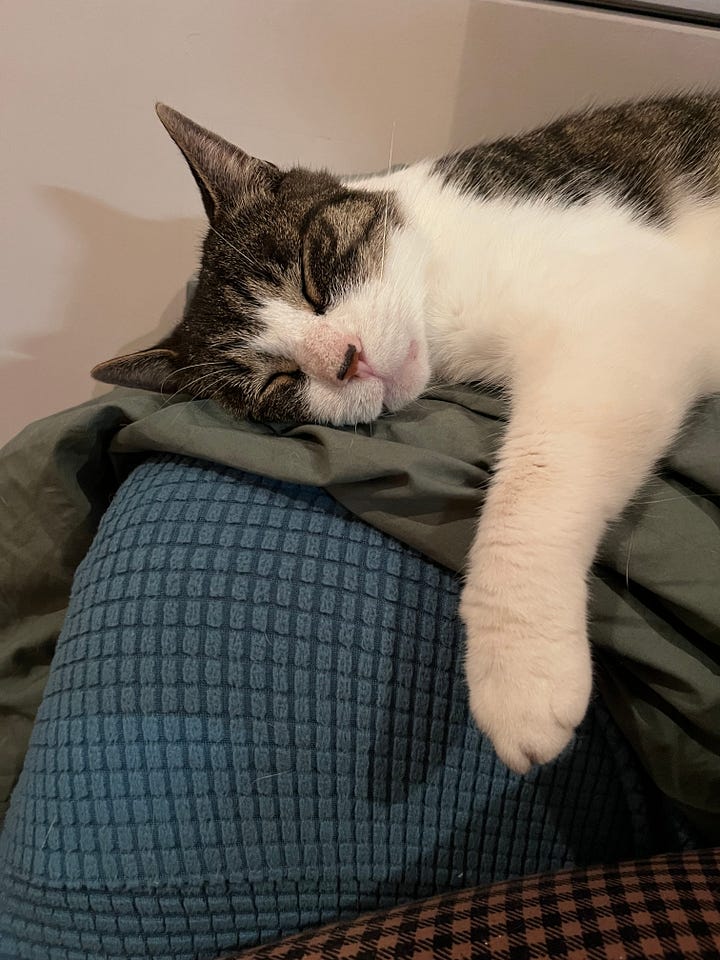
Rubbing tummies
We understood each other. When he was outside, I’d whistle and he’d come. When I wanted him to jump on my lap, I’d tap my thigh and he’d jump up. When he was ready to cuddle in the arm chair, he’d go and sit beside it, waiting. Once I came over and settled, he’d then jump up, pressing his head into the palm of my hand, purring. He’d blink at me in a slow and steady way. I’ve heard this is how cats express affection—their version of air kisses.
Cats usually don’t like their tummies rubbed or even to reveal their bellies. It’s to risky; too vulnerable: a lesson learned and encoded in their DNA from the wild. But Séamus would roll over on his back, turn his tummy up to me, and purr as I stroked his soft underbelly.
I called him the editor-in-chief of The Gaelic Effect because when I was writing, he’d always be on my lap. He often rested his head and paws on the keyboard.
Whenever I returned home, he would come downstairs to greet me; my partner said that when I was away, he’d sit looking at the door, waiting.
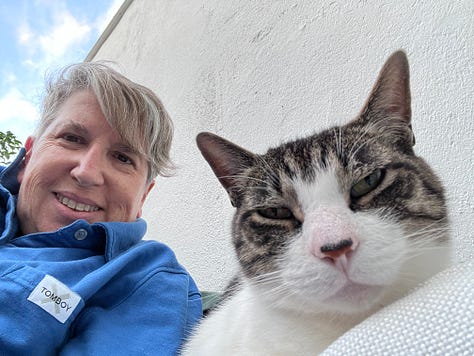

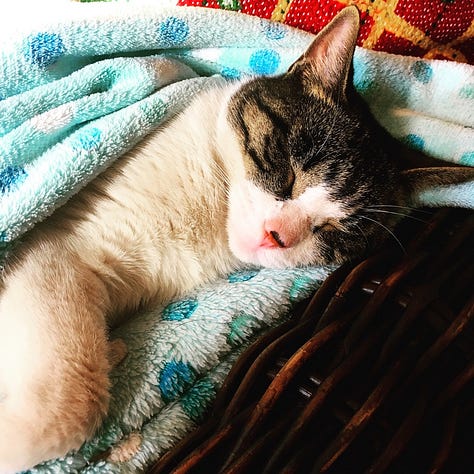

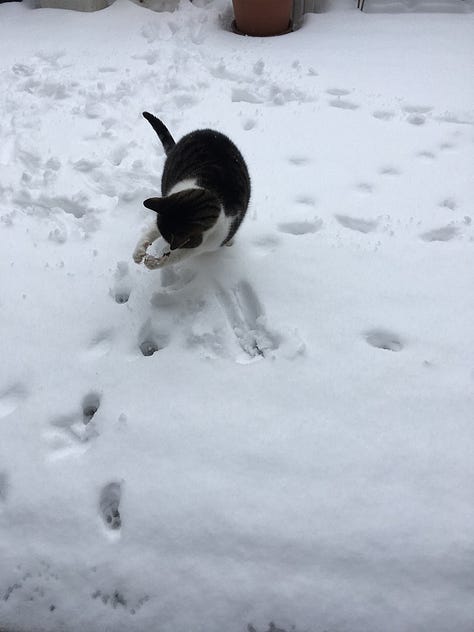


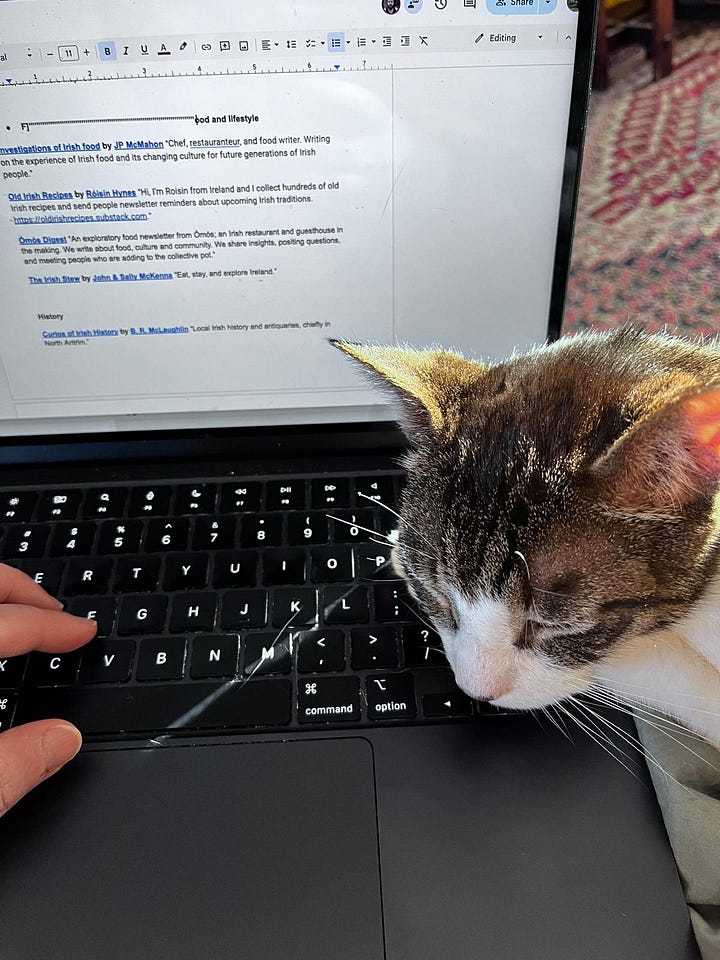
Speaking in complete sentences
He was a handsome boy, with a touch of “paint” on his nose, a lighter cream color around his eyes (J.D. Vance—he’d that mascara look before you!) and the longest eye lashes I’ve ever seen. He was also a sage. Over the years, I’ve asked different animal communicators to speak with him. They each had similar reactions: “He’s not really a cat.” “He’s more human than cat.” “He speaks in complete sentences.” He modeled a level of self-confidence, self-acceptance and esteem that I continue to aspire to. I didn’t realize until now just how much he was my teacher. A few months ago, he said that he wanted me to love myself as much as he loves me. That surprised me. I thought he would say: love myself as much as I love him.

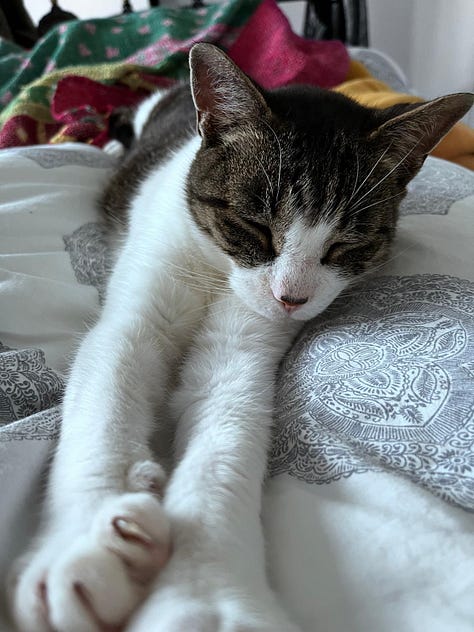
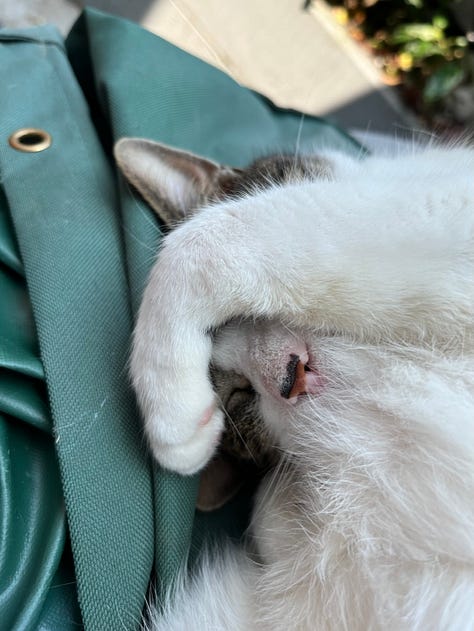

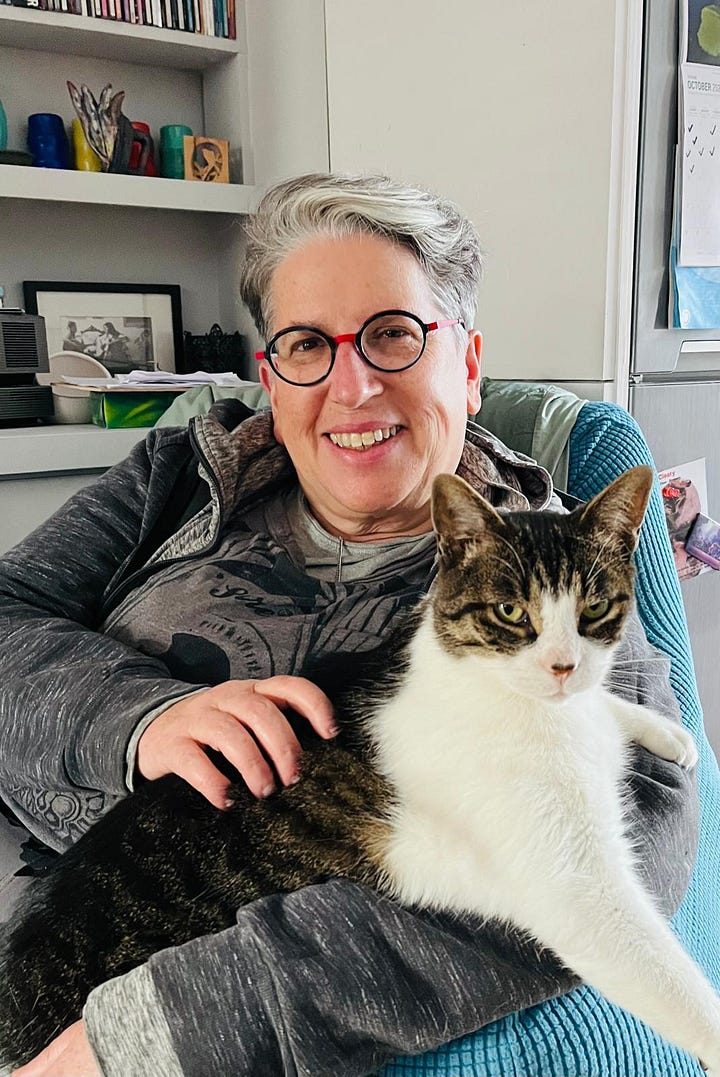

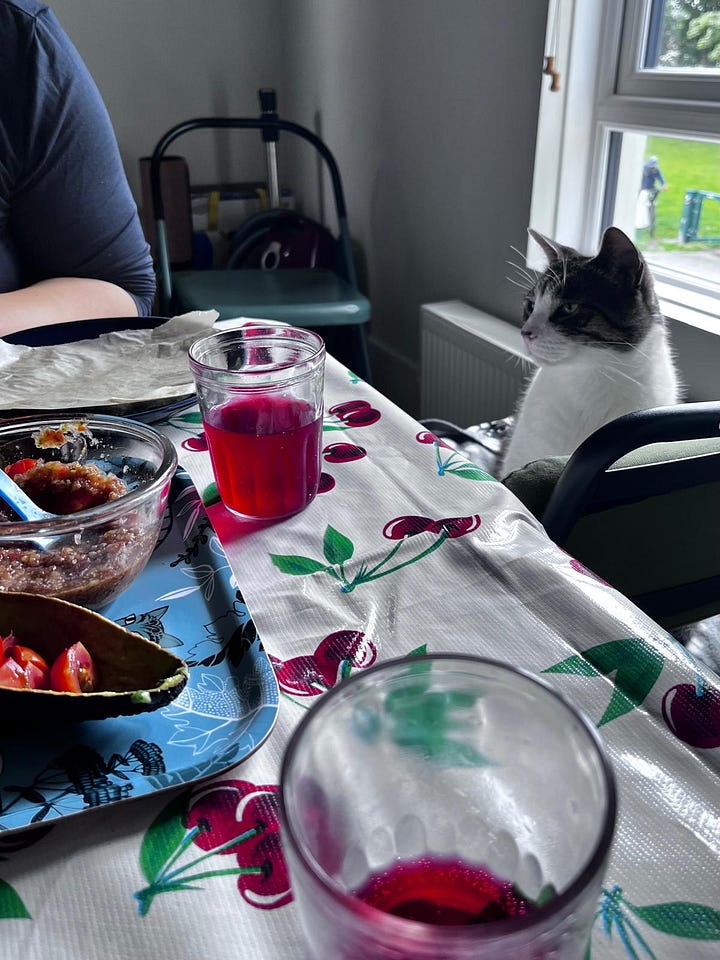
Firm knowing
The druids kept an oral tradition so we don’t know much about their beliefs. We do know they considered trees to be Gods, and worshiped in groves. We know they looked to birds and animals for guidance. I can also understand why witches had familiars; that pre-Christian tradition, of looking to nature for healing and support, aligns with druidic practices. The word “druid” in English and draoi in Irish come ultimately from the same “Proto-Celtic *druwits (literally either “oak-knower” or “firm knower, great sage”), from either Proto-Indo-European *dóru (“tree”) or *drew- (“solid, firm, hard”) and *weyd- (“to see, to have knowledge”). [Wiki] The word draíocht—meaning magic, wonder, awe and enchantment in Irish, comes from the same root. I think what I have learned from Séamus is solid and firm knowledge.
And while there are different ways in Irish to say that someone is dead, deceased or departed (marbh) or to refer to death, bereavement or passing away (bás), I come back to the idiomatic way of saying this as Gaeilge: Tha e nis air slighe an fírinne (He now is on the path of truth).
With a heavy but full heart,
Dian, as bhaile arís (at home again) i mBaile Atha Cliath (in Dublin)
P.S. Séamus also had attitude and a sense of humor. Look out on Notes tomorrow for one last amazing Séamus story!
P.S.S. As always, Irish words are hyperlinked to https://www.abair.ie/ga where you can hear the pronunciation in the dialect of your choice.
You can also support The Gaelic Effect and its mission by making a one-time donation by clicking anseo (here).
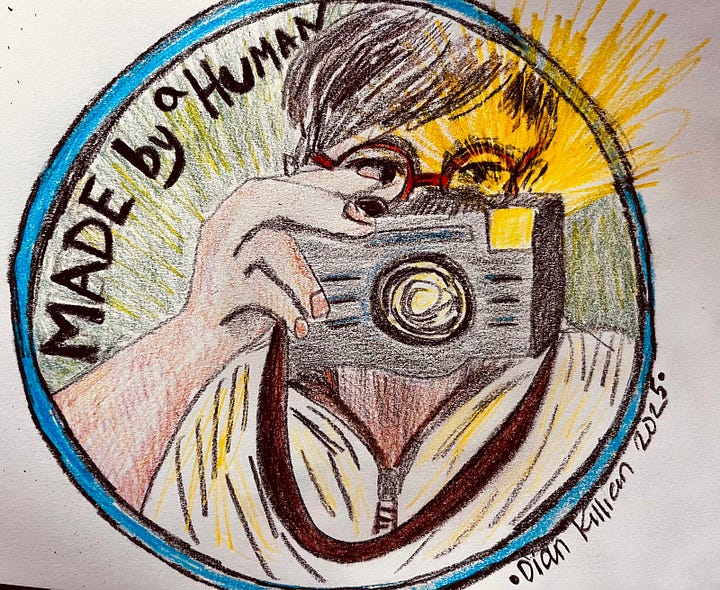




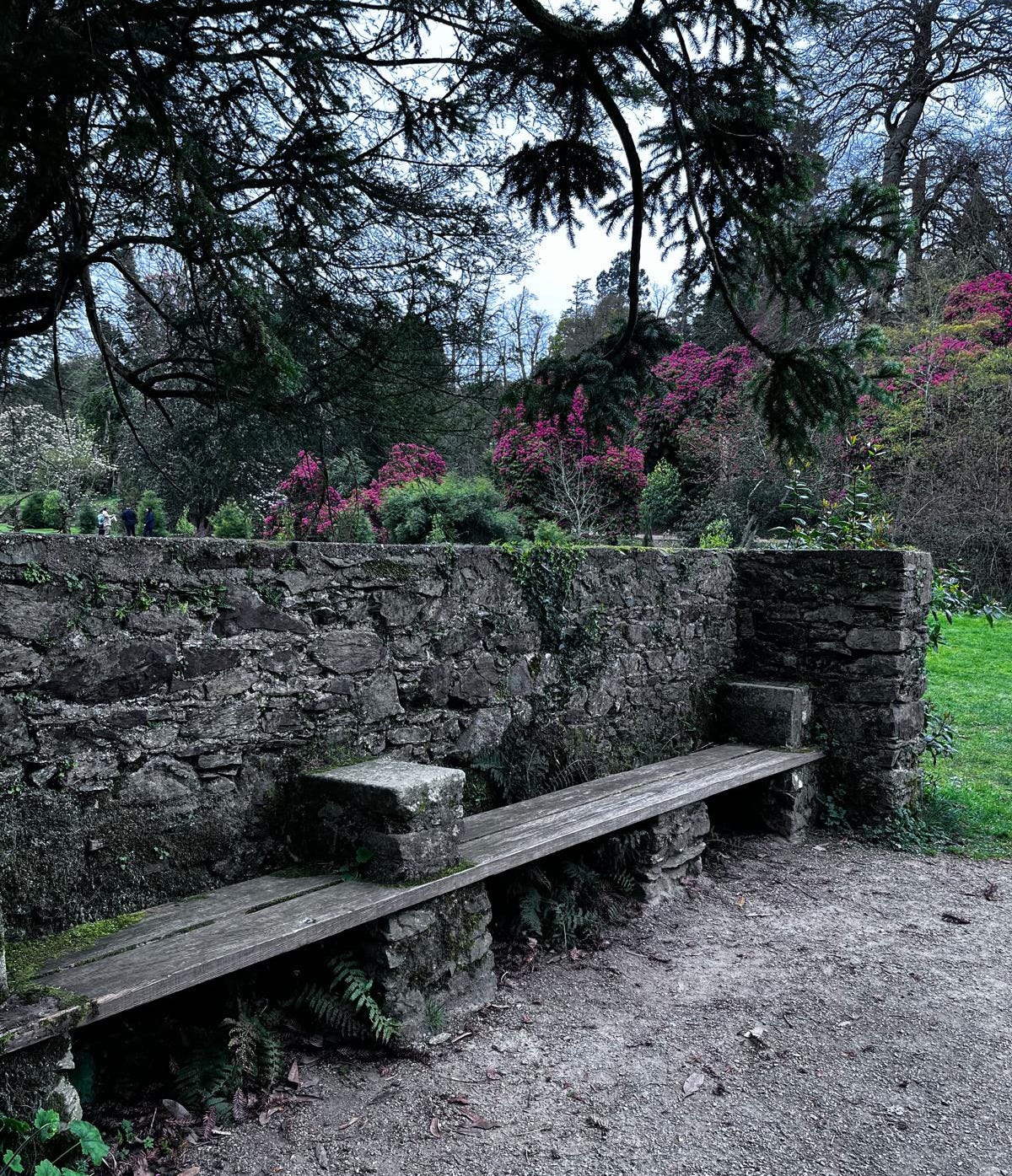
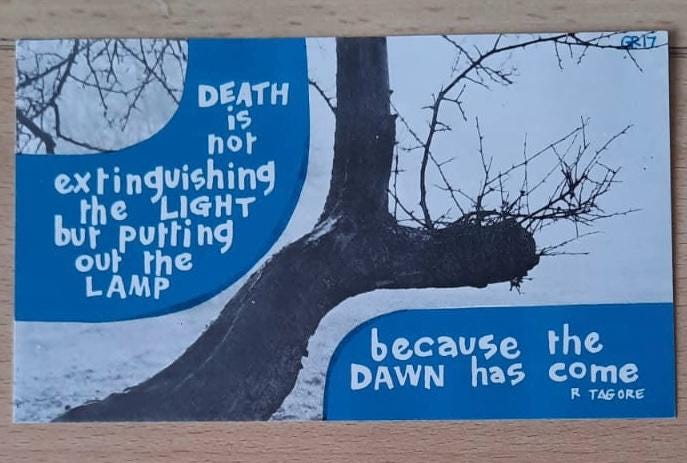

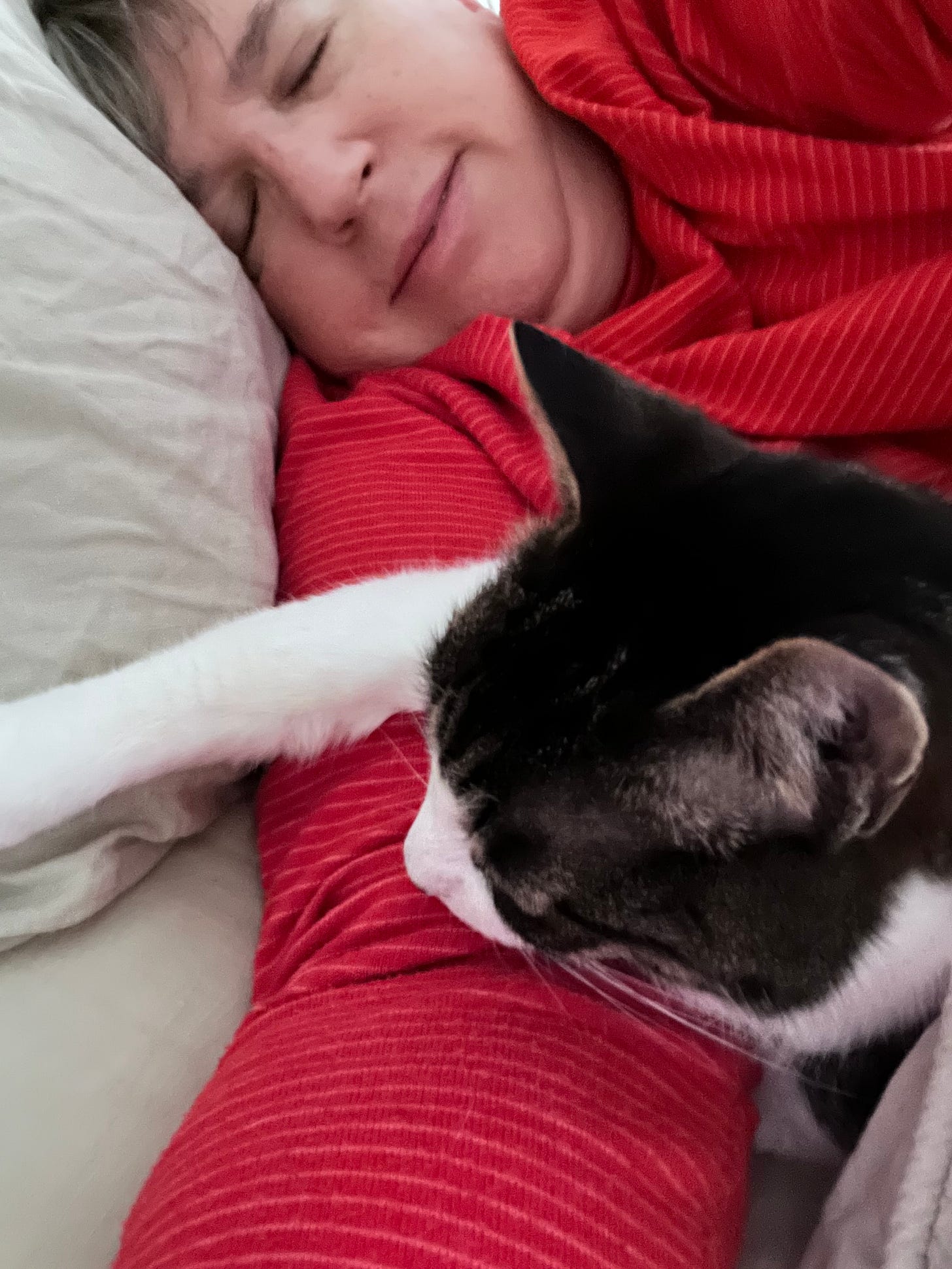
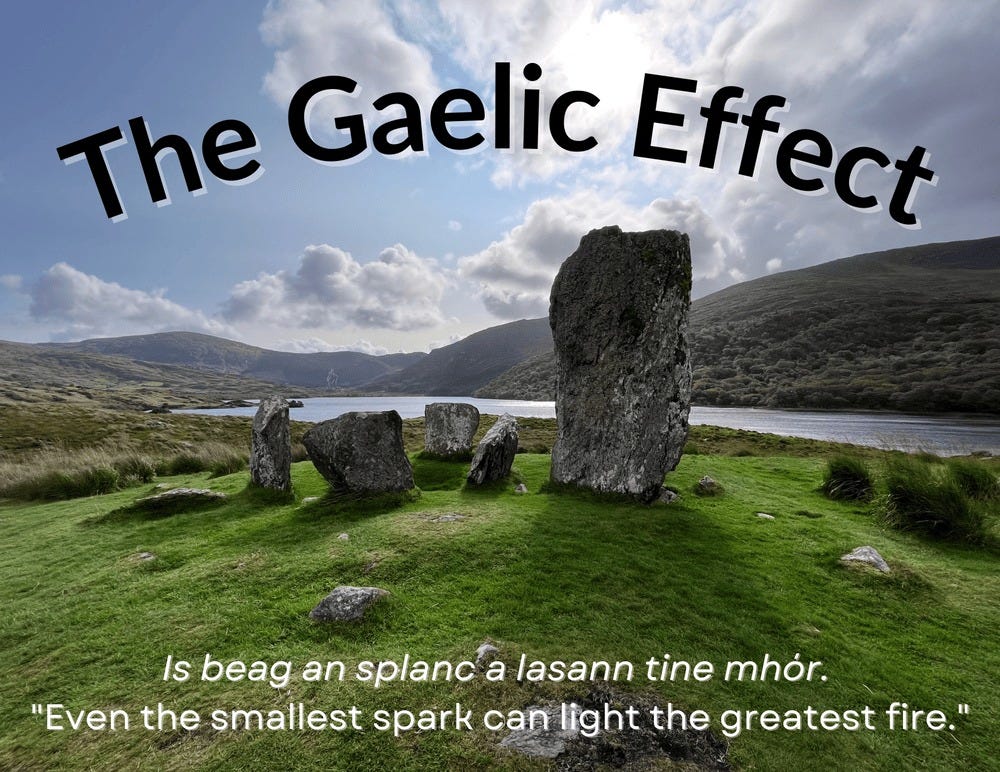
My dog passed on, one year after my husband passed. I was left with two cats. Though I loved them, I had not yet learned cat language. They were there to comfort me, guide me and open the door of wisdom as cats know it. They nursed me back to life, and then they, too, moved on to their path of truth. Now I am blessed with an indoor only cat, who likes it that way. We pray together. As I gaze in to her eyes I say, "I know you're wearing this cat costume, but I believe there's someone else within" Must be G-D...or my mother. and.like yours. Lucia roles over every morning for her daily massage, tummy, legs, paws, pads, ears..the whole body treatment. I am never quite sure who benefits from this ritual more. Sending you my prayers during this time of sorrow.
Thank you for the beautiful sharing of this tough transition. Much love to you, friend.